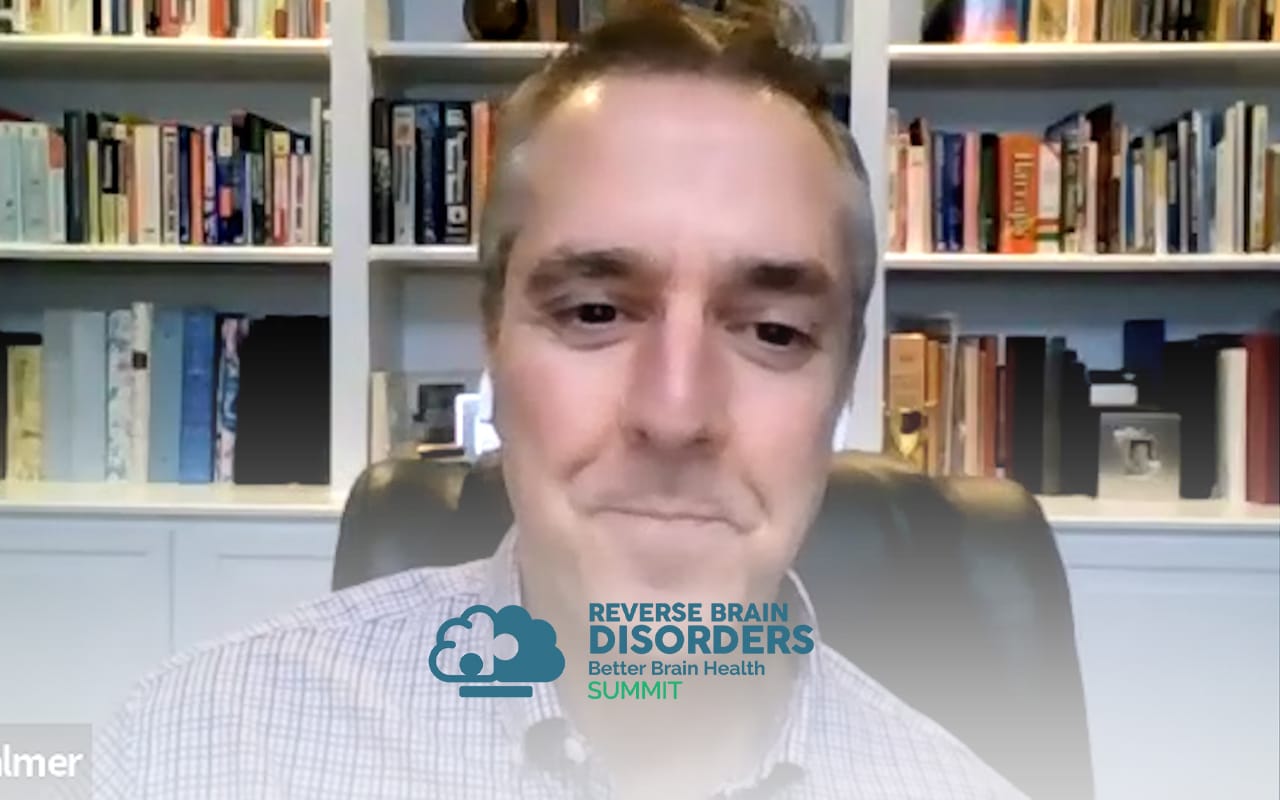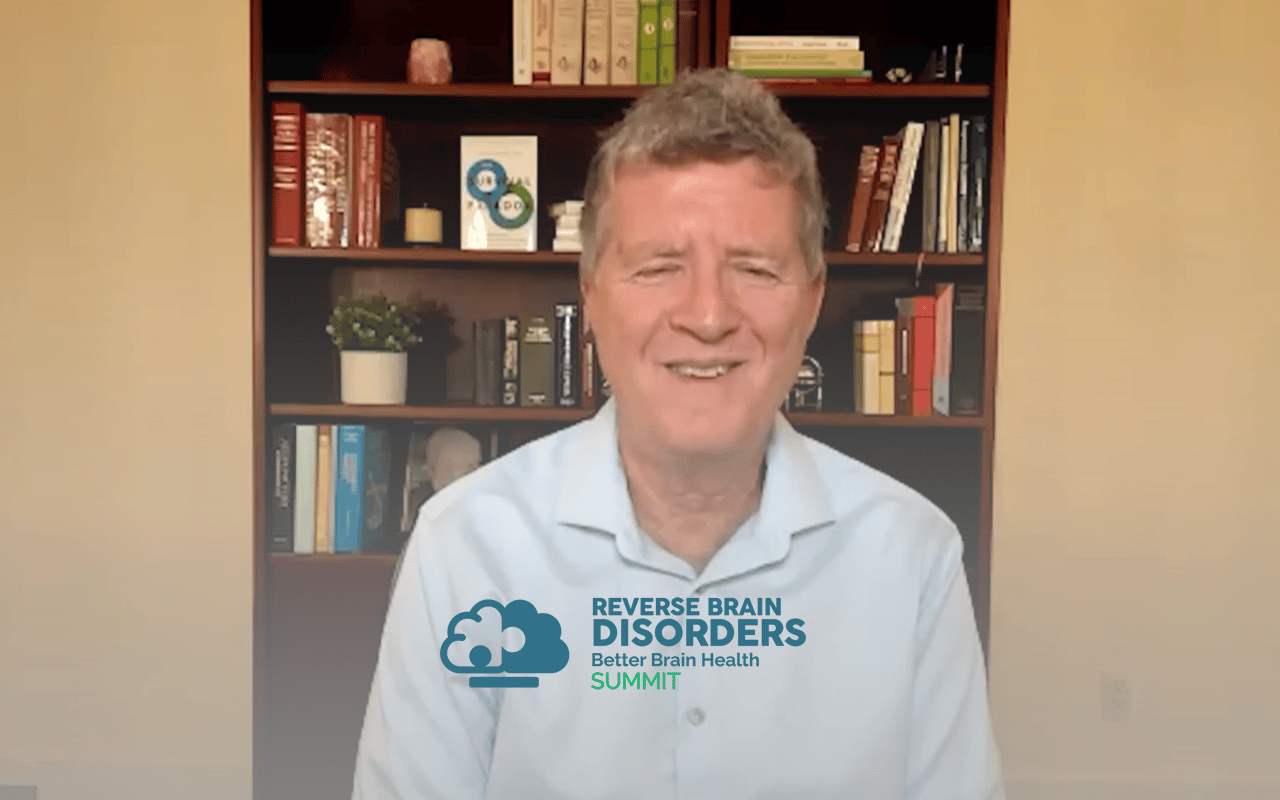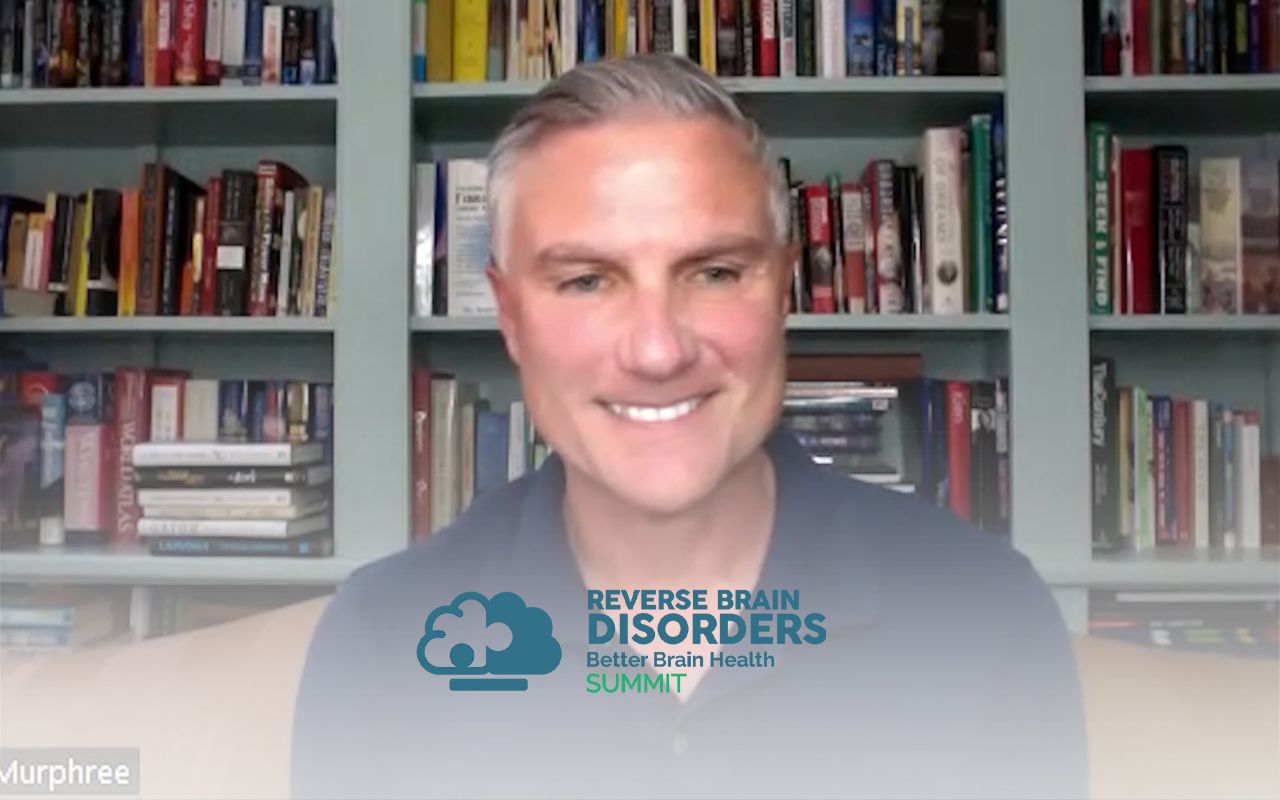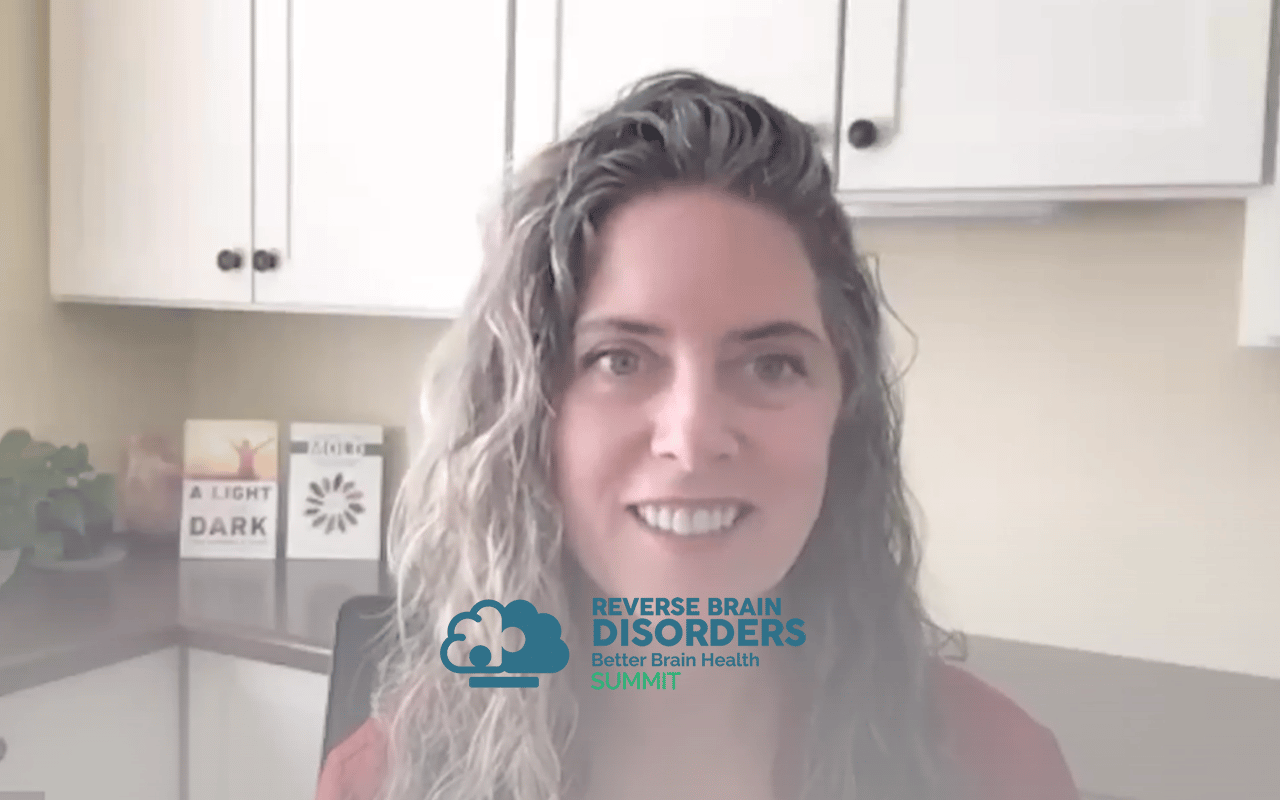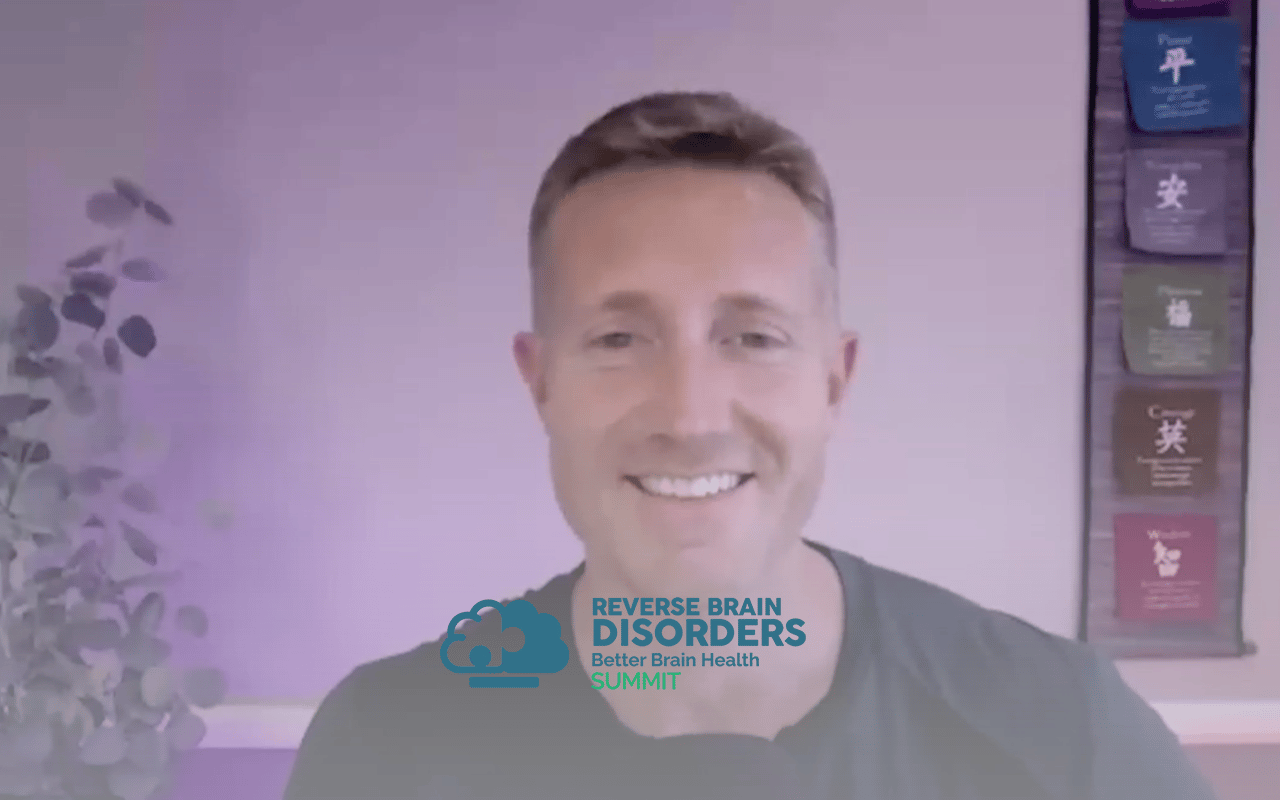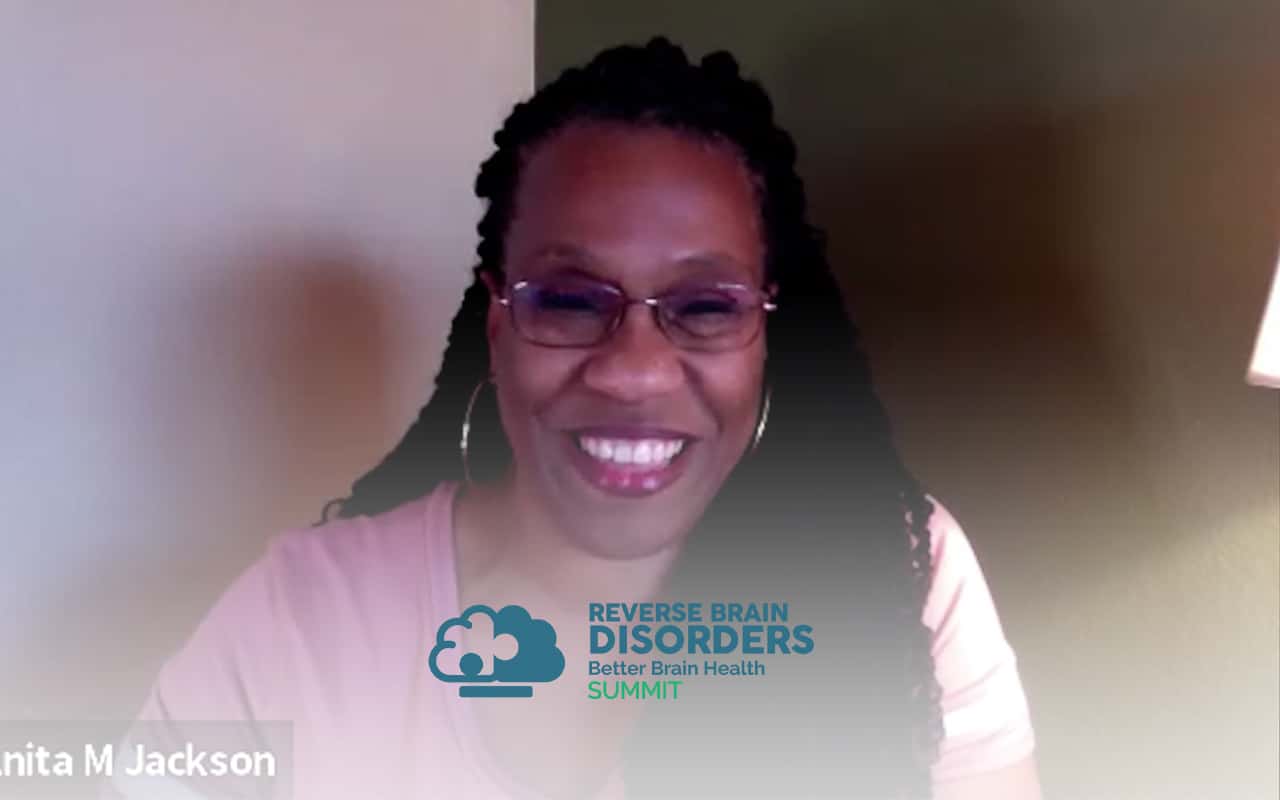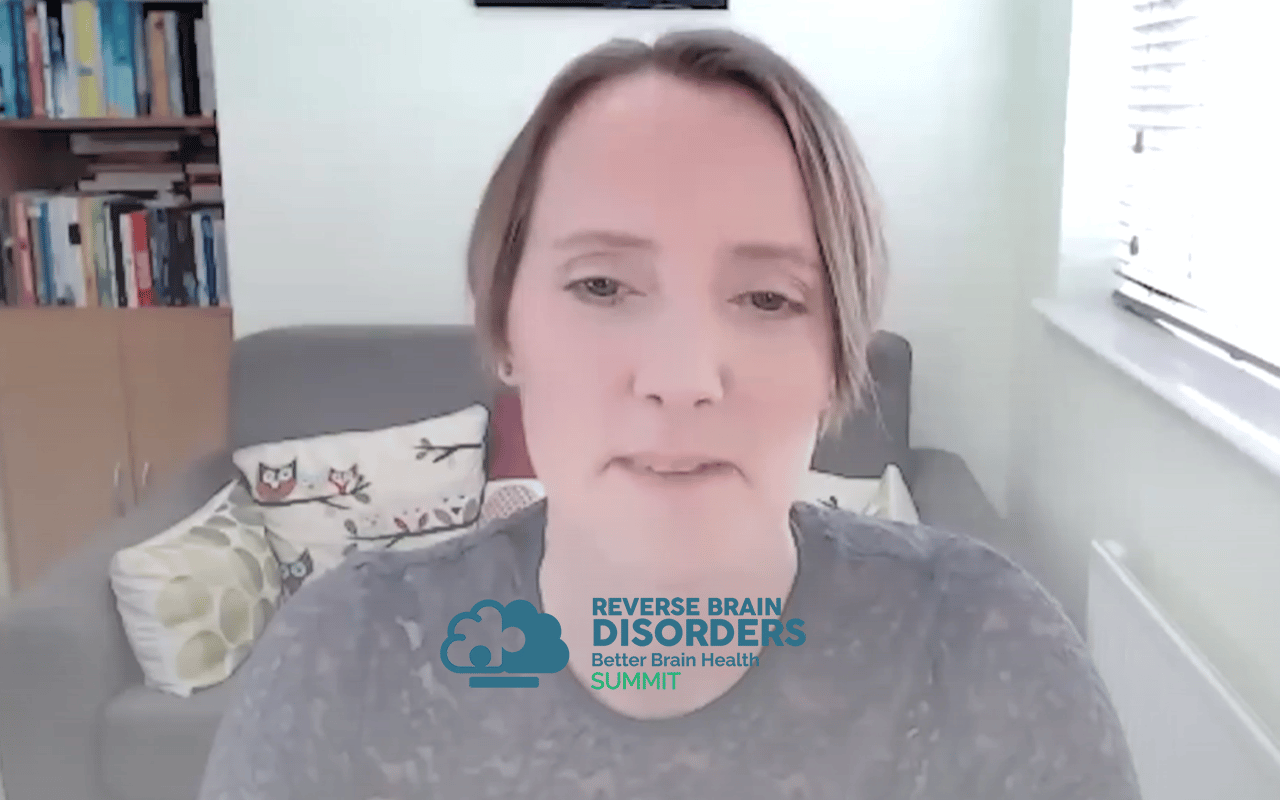Join the discussion below

Dr. Ruan is the Founder and CEO of Texas Center for Lifestyle Medicine. He devotes his career in practicing and building systems that allow for efficient delivery of healthcare. He is a board certified internal medicine physician but also have advised with companies to improve their workflow, company culture, marketing,... Read More

Dr. Christopher M. Palmer is a Harvard psychiatrist and researcher working at the interface of metabolism and mental health. He is the Director of the Department of Postgraduate and Continuing Education at McLean Hospital and an Assistant Professor of Psychiatry at Harvard Medical School. For over 25 years, he has... Read More
- Mental disorders are metabolic disorders of the brain
- Our current diagnoses are not valid disease entities; they are more similar than most people realize
- Dietary interventions, like the ketogenic diet, can play a powerful role in treating serious mental disorders, such as chronic depression, bipolar disorder, and schizophrenia
Cheng Ruan, MD
You know, so many people have put mental health in a bucket by itself away from brain health. And that’s just not right. So there’s a metabolic theory of mental illness that we really need to talk about on the basis of brain energy. Dr. Christopher Palmer is a Harvard psychiatrist and researcher working at the interface of metabolism and mental health is the director of the department of post graduate and continue education at the McLean Hospital, an assistant professor of psychiatry at Harvard medical school. So over 25 years, he’s held administrative, educational research and clinical roles in the psychiatry at Harvard and he’s coming out with this amazing book actually, it’s already out.
The book is already out with this amazing book about how the brain actually works around mental illness and mental health is truly brain health and how food can really affect what we think of our existing mental illnesses. But what we don’t want to do is to categorize each mental illness as its own thing and not look at the bigger picture. So, I’m super happy to welcome Dr. Christopher Palmer onto the forum. I’m super excited to have a chat with you. We met on twitter of all places. And you put out a tweet for one of the chapters of your book, Really just talking about the metabolic force of the brain and I’m like, you know what really got to talk to this guy. So thanks for coming on. I appreciate you.
Christopher Palmer, MD
Yeah, no thanks for inviting me.
Cheng Ruan, MD
Well, let’s get into it? So well let’s actually start with the book. What is your book’s name and what is your inspiration behind it?
Christopher Palmer, MD
So the book is called Brain Energy. And it is a very bold and audacious book. I am just going to put that out there. So this is a book that integrates decades of clinical neuroscience and metabolic research into kind of a unifying theory for what causes mental illness. And the conclusion that I come to is that mental disorders are metabolic disorders of the brain. But I could just unpack that a lot. But I will let you lead the way and how you want to unpack it.
Cheng Ruan, MD
Well, let’s unpack let’s define metabolic because I think here’s the thing, right? So right now, the way that mental health disorders are classified, they’re kind of its own separate thing here. Schizophrenia, bipolar disorder, his anxiety, his depression, right? And then there’s drug resistant depression and each of them have their own codes tied to it, you know, in medicine? Right. And I feel like that’s looking at it in a very secular way. So how should we be looking at that? And how does that tie into the rest of the brain health?
Christopher Palmer, MD
You know, it’s a really important question and for better or worse, continues to be a controversial one. So, you know, the American psychiatric association puts together the diagnostic and statistical manual D. S. M. Which is kind of the bible of psychiatric diagnoses. And on the surface it kind of makes sense. Schizophrenia is very different than depression. Which is very different than alcoholism or alcohol use disorder which is very different than anorexia nervosa. And when I say those terms, most people know what those mean and they’re very different things: ones, an eating disorder, ones, you know, using excessive amounts of alcohol, another person’s hallucinating. But when you actually start to look at real people with these disorders, there are two major problems and they fall primarily in the categories of heterogeneity and comorbidity. And so heterogeneity means if I look at two people with schizophrenia, they can look wildly different from each other.
One person can actually be functioning fairly well in society have a job, have a family, another person can be completely disabled and tortured by their hallucinations and delusions and be homeless. And so they can look very different from each other. Similar with all of the other diagnoses. You know, autism spectrum is a clear example. There’s some people with autism spectrum disorder who also have seizures and cognitive impairment and living group homes unable to care for themselves. And there are other people who meet criteria for an autism spectrum disorder who are billionaires and we know who they are with their household names. They are the you know they are the kind of some of the richest most successful people that we all have heard of and know and love. You know we really to believe that those two human beings have the exact same brain disorder. I mean it’s really kind of ridiculous on the surface they might both have some problems with social skills. But one person also has seizures and cognitive impairment and is unable to care for themselves. And the other person is a billion a wildly successful business person. And we’re supposed to believe that they have the same brain disorder. So the other problem though is co morbidity and that it turns out that especially among people who get treatment for mental disorders the overwhelming majority of people have more than one diagnosis. One study found on average they have 3.5 diagnoses. And what I mean by that is that although on the surface schizophrenia, O. C. D. And anorexia nervosa are all different disorders. It turns out that most of those people who have schizophrenia and O. C. D. and anorexia also have major depression And they also oh they all have anxiety too.
Whether we diagnosed anxiety disorder or not. Well that’s you know neither here nor there. Oh gosh a lot of them have cognitive impairment. If we did neuropsychiatrist ng they would have cognitive impairment and so they start to end up overlapping a lot. And our diagnostic labels start to fall apart when you look at real people more importantly when we look at any specific risk factors whether it’s childhood abuse and adverse childhood experiences or even specific genes that confer risk for mental illness. There is no one risk factor that confers risk for anyone with a disorder. Instead they all confer risk for numerous disorders and some of them confer risk for seeming seemingly every disorder. So childhood abuse most people know. Well yeah, that causes PTSD. Well, guess what else causes major depression, anxiety disorders, personality disorders, alcohol use disorder, heroin use disorder also causes bipolar disorder and schizophrenia. People who have adverse childhood events are more likely to develop all of those disorders. So how are we supposed to make sense of that?
But even when you get very granular and concrete and look at specific risk genes for mental illness, there is no one gene for schizophrenia, there is no gene for bipolar, there is no gene for depression. Instead, the risk genes confer tiny tiny amounts of risk. People are thought to have thousands of these risk genes and they just somehow come together. But even when we look at one specific gene, one specific gene might confer risk for schizophrenia and bipolar and depression and epilepsy and heart disease. Huh? How does that work? Why would one gene confer risk for all of those different disorders? And so if any of this is kind of surprising to the listeners or feels like shocking. It turns out that, you know, the National Institute of Health, abandoned D. S. M. Diagnoses over a decade ago, fully recognizing and acknowledging they are not valid disease constructs.
Cheng Ruan, MD
Really?
Christopher Palmer, MD
Now that is, yes. Yeah. They developed their own system called the research domain criteria, acknowledging we are not making progress and mental health research because we are assuming these are distinct illnesses and the overwhelming evidence says they are not, we cannot talk about schizophrenia as though it is one and only one disorder and as though that disorder is distinct from all of the other disorders. Because all of the evidence, the clinical evidence, the neuroscience evidence, the genetic research, all of it says they are not in fact distinct disorders. And so that’s kind of the big picture with our diagnosis. Diagnoses really don’t add up now. This is not to say that mental illness is not a real thing. I want to be clear about that because there are people who want to deny that mental illness exists. They think, you know, it’s just we’re just labeling people or you know, we’re making stuff up. I don’t believe that for a second. I think mental disorders are real. I think psychosis is a real thing. Hallucinations are a real thing and they are not normal. Severe crippling depression is a real thing. Having panic attacks for no reason. That’s a real thing. All of those symptoms are real and they cause tremendous suffering and impairment and functioning but the way we label them and pretend that they are distinct illnesses. The science has been overwhelmingly clear now for well over a couple of decades, actually.
Cheng Ruan, MD
You know this is disheartening but encouraging at the same time, I think it’s disheartening because, you know, that’s the things that kind of learning method in school, Right? And that labeling is sort of part of it. But it’s encouraging because whenever people are labeled something, whether it’s a mental health disorder, brain health disorder, there’s this perception that there’s not much we can do about it. Here’s some medication, that’s it, right? Where else do we go next? Maybe some counseling, cognitive behavior therapy. But then if that doesn’t work or where do we go next? Right. And so, but instead of saying, where do we go next, where should we start, where should we start looking at these mental disorders?
Christopher Palmer, MD
You know, it’s a really important point. And I wanna actually just build on what you just said, because most people are gonna say, we should start with what works. We should start with our evidence-based treatments and let me, you know, so, I am a Harvard psychiatrist for 27 years. I am, you know, I am committed and passionate to this field. I’m committed to helping people who suffer from mental disorders and I very much want to help them. But when you look at the actual kind of effectiveness of current mental health treatments. It is abysmal, we have to come clean. We have to let people know because right now we tell people, oh we have treatments at work. It’s great if we just got more people access to care, everybody would be fine. And that is blatantly a lie. And we know it is because even when people have access to the best possible care, we know with certainty based on innumerable trials that have followed people for years or decades, people are not getting better. And so everybody kind of knows schizophrenia and bipolar disorder. Well those are chronic lifelong disorders and yeah our treatments suck. And we all know that. So those people, yeah, they don’t get better. They live second class lives but you know those are bad disorders but even something like major depression. We have so many treatments, antidepressants, psychotherapy, ECT, TMS, ketamine.
Now we’ve got psychedelics, we’ve got so many treatments to choose from. One would think we would be getting a lot of these people better all the way better. Well, it turns out that with the very first child, an antidepressant that somebody gets. There’s only a 30% chance that you’re actually going to have your illness go into remission And that means you’re no longer going to meet criteria for the disorder. That means 70% of people who get treatment for the disorder still have the full blown disorder. Even if their symptoms go down a little bit, they still have the full blown disorder. They have more than five of the symptoms that are not getting better and the people are still suffering. But when we look at the long term outcomes That number is even worse. So when we look at the long term outcomes there was one study that followed people for 12 years. Hundreds of people, weekly interviews all getting treatment for depression, a wide variety of treatments medication, psychotherapy, ECT, TMS. Whatever the psychiatrist prescribed, Only 10% of the people got a durable remission that stayed for that period of time.
That means 90% of people who get treatment for depression are not getting all the way better and staying better and in case you think I’m being way too pessimistic like Dr. Palmer you’re oh you are you are really like going too far here. Let me be clear. Mental disorders are rising. They are escalating in prevalence and they are now the leading cause of disability in the United States and on the planet. And the number one cause of disability of all medical disorders. This includes heart disease, back pain, cancer, all of them. The number one disabling disorder on planet earth is plain old depression. And even though we’ve got all these antidepressants and talk therapy and happiness thinking and E. C. T. And ketamine and all of it, depression is the leading cause of disability and it’s not because those people aren’t getting treatment is because our treatments are failing to work. So where should we start? We need a new paradigm.
Cheng Ruan, MD
Right.
Christopher Palmer, MD
We need to understand what on earth is happening. What exactly is a mental disorder? What is causing these mental disorders and what would be more effective strategies to intervene? Because clearly whatever we’re doing is not working. And that is where I’m really hoping that brain energy might help to shift the paradigm and the minimum. I’m hoping it will start a national conversation and possibly a national debate. I know there will not be people who want change. You know when you radically change a field that is called disruption it is a disruptive innovation and the powers that be don’t like disruptive innovations because the powers that be like the system the way it is. They’re making lots and lots of money with the system the way it is. They do not want change and they will resist change.
But I am convinced you know this is not a wild speculative theory. This is a theory that simply takes decades and decades of research and puts it together into one coherent way. I will be clear. I am not the first to suggest that metabolism and mental illness are closely related. Or in fact even that mental disorders are metabolic disorders in order to understand metabolism. You know. So a lot of people think of metabolism is burning calories and it just it that’s the thing that makes people weigh a lot or not wail, it’s all about weight burning calories and fat and it’s all about you know, people with a high metabolism are skinny and fast and people with a low metabolism are fat and slow. That’s where metabolism begins and ends for most people. But in fact metabolism is way more than that. Yes, it does affect, it is about burning calories and yes, it does affect your weight, but it is so much more than that. You know, at the end of the day, an easy definition of metabolism is taking food, turning it into energy or building blocks that are used to maintain or grow cells.
It is fundamental to the definition of a living organism and metabolism affects the structure and function and maintenance of all cells. And so if there are problems with metabolism, it means that there might be problems with the structure function or maintenance of cells. And when cells are not being properly formed or functioning properly or maintained, they will obviously not function properly. And I am arguing that that is what mental illness is when the brain is metabolically compromised and it fails to function properly. And that results in symptoms that we call, you know, symptoms of mental illness.
Cheng Ruan, MD
So we can see that in sort of everyday life, right? If someone doesn’t sleep well then the next day they don’t feel very good, right? Or if someone has a thanksgiving dinner, right? And then they get super sleepy and they may get knocked out a little bit. And so there’s sort of that postprandial coma, we call it right. We can see that if some people do not exercise for a while, their mood gets affected, right? Or conversely, if they start exercising consistently, they sort of give that post workout high the post workout serotonin release, right? So we can see that sort of thing in everyday function. So it’s not surprising at all that over a long period of time, if we look at this as lifestyle factors, it can truly impact the way that mental health has really looked at. So let’s start with some lifestyle factors. So can diet play a role into improving mental health chronically.
Christopher Palmer, MD
Absolutely. So we have pretty good evidence, both epidemiological studies and at least some pilot clinical trials showing that if we can help people just clean up their diet, get rid of junk food, get rid of highly processed foods, get rid of super high carbohydrate foods that that that can have an impact on depression and anxiety. But I want to share a different story with everyone. And because this is one of the stories that really upended everything that I knew as a psychiatrist because most people hear what I just said, oh yeah, you eat a little healthier. Sure, maybe, maybe, you know, decreases brain fog or something. A big deal. That’s probably not even really a mental illness. It’s certainly not schizophrenia. So, like whatever. So you’re just talking about being healthy? No, I’m not talking about just being healthy. So let me tell you the story of a woman named Doris. She’s given me permission.
She gave me permission to use her real name. So, Doris was diagnosed with schizophrenia when she was 17 years old. She began having daily hallucinations and delusions over the ensuing decades. She tried numerous antipsychotic and mood stabilizing medications. They failed to stop her symptoms. She had a guardian, a court appointed guardian, and she had a pack team, which is a team of professionals who come in and did her grocery shopping and paid her bills and help her clean her apartment because she had schizophrenia and that is very common for people with schizophrenia. Her hallucinations and delusions persisted, and she was tormented by her illness between the ages of 68 and 70. She tried to kill herself at least six times and was hospitalized for the suicide attempts.
At the age of 70, she was referred to a weight loss clinic at Duke University where they happen to be using the ketogenic diet as the weight loss intervention Within two weeks. Not only did she start losing weight, but she spontaneously reported that her long standing hallucinations were going away within two weeks. Within months. All of her symptoms of schizophrenia were in full and complete remission within six months. Doris was off all her psychiatric medications and remained in full and complete remission of schizophrenia. Doris went on to live another 15 years. She remains symptom free medication free out of psychiatric hospitals, no more suicide attempts. And she even got rid of the guardian. She learned how to take care of herself and no longer needed the guardian if anyone knows anybody clinician or otherwise. That does not happen after 53 years of schizophrenia and it doesn’t happen with the best medications that we have to offer. It doesn’t happen with E. C. T. or T. M. S. And it sure as hell doesn’t happen with the diet and I have numerous other stories that I could share. But it’s stories like that that led me on this scientific journey to understand what the hell just happened like. Like this is impossible.
And initially I really felt that way this is impossible. This cannot be happening. And more importantly this flies in the face of everything we have been told about schizophrenia. Schizophrenia is not supposed to go into remission. It’s not supposed to get better. It is a chronic genetic lifelong disabling disorder. And now at this point I have dozens of cases of people with schizophrenia and bipolar disorder and chronic depression who have put their illnesses into full and complete remission. They are now off medications. They are happy, healthy, productive citizens in the world again. And I am much more interested, I mean obviously I’m interested in the ketogenic diet as a therapeutic intervention. We can get into the science of that because it’s not just eating quote unquote healthy diet. It is, there’s a lot of science that we know about it, but I’m much more interested in the bigger picture that I’m using dietary strategies to put what we previously thought of as chronic lifelong disabling genetic disorders into full and complete remission. And that flies in the face of everything that our field tells people right now.
Cheng Ruan, MD
That’s a completely different paradigm. That’s an absolute completely different paradigm, you know? I recently spoke at the American nutritional Association conference and this year’s conference was mental health and we actually looked at a lot of data on nutrition and mental health and not just mental health and brain health as well, from psychiatric disorders to Alzheimer’s disease, seizure disorders, which there’s ketogenic diet for seizure disorder for over 100 years and were able to get into molecular mechanisms, you know, as as to why. But I think you’re right. I think the bigger picture here is starting with that conversation and not just talking about a dietary approach, but really a lifestyle approach as to what’s going on in someone’s life, that what’s the, what are the lovers that we can actually pull for this and that’s where we can start. So I assume she was the first to really inspire you to write the book, correct?
Christopher Palmer, MD
So she was not the first case. The first was a man. So I’ve been actually using, I’ve been using low carbon keto diets for 20 years in practice and I was primarily using in patients with treatment resistant depression, anxiety disorders, even personality disorders. And with sometimes seeing wildly successful, you know, results. But again, changing your diet and feeling less depressed. That’s one thing, changing your diet and putting bipolar disorder or schizophrenia into remission. That’s completely different. And so when I, when I saw that happen in one of my patients and now, like I said, over the last six years, I’ve kind of become an expert in this area. I’ve seen dozens of patients and heard that. I mean, the great news is that I’m not alone, I’m hearing from clinicians, patients, researchers from around the world who are using these interventions as well and seeing equally impressive results in their patients.
So that tells me as a physician and scientist that this isn’t I’m not making this up. I’m not somehow seeing something that’s not there. This is being replicated around the world. We’ve got five controlled trials underway already. And the largest case series we’ve got was of 31 patients. And 28, 3 of those patients were not able to do the diet. But 28 of the patients were, And these were patients with schizophrenia, bipolar and chronic depression and they were all treatment resistant at the end of that trial. 40 I think it was 43% achieved a full remission of illness and 43% remission of what we consider and and all of the patients who did the diet had at least improvement in their symptoms and and then that gets into this broader issue. What else can we do? Because I don’t think that there’s one and only one treatment. I don’t think it’s, you know, if you want to run a marathon and improve your metabolic health so that you can run a marathon, it’s more than a diet and it’s more than exercise.
It’s both of those and it’s more, it’s getting good sleep. It’s reducing your stress. It’s avoiding substance use, like alcohol or marijuana. If you’re training for a marathon, you shouldn’t be drinking, you shouldn’t certainly shouldn’t be smoking pot every night. And so it’s all of those things. It’s looking at a comprehensive kind of strategy to improve your health, but it’s not rocket science. It’s not brand new stuff. This is like common sense stuff that everybody knows that, you know, strategies that we can use to improve people’s health. But so I think it’s a little, there are some strategies like the ketogenic diet for which we actually know some very detailed mechanisms of action. So when I say diet can improve it, I don’t mean just go eat some fruits and vegetables and you’ll be all set because that’s not at all. What I’m saying. The ketogenic diet is a really powerful intervention that, as you said, can stop seizures and like seizures are a real thing. And the Mediterranean diet won’t stop seizures. Let me be clear a vegetarian diet that’s really healthy. A whole food, vegetarian diet will not stop seizures, but a ketogenic diet will. So we need to leverage the science that we do have, we need to leverage the clinical database that we do have to use this to develop effective strategies to help people improve brain function. But then some of the other strategies like exercise and good sleep and stress reduction are all obvious and common sense. But even though they’re obvious and common sense, a lot of people don’t do them. And so if they’re not doing them, we need to get them to do them.
Cheng Ruan, MD
Yeah, absolutely. So what does this mean? Like what does this mean for the field of psychiatry? Like the psychiatrist, the entire field of psychiatry, you’re gonna get to where you’re talking about, like in the new future, is that possible?
Christopher Palmer, MD
I audaciously. I am hoping so. But I have also come to a very stark realization, I came to this years ago, as I was working on this theory and I was working on the book. So the book has been a work in progress for five years and I realized five years ago, like, you know, initially I was thinking, oh I’ll write up a nice journal article and submit it to a journal and that’s how I’ll prove this theory. I quickly realized two things: number one that it’s too long, like there’s too much data to include in a single journal article and that’s why I decided it’s got to be in a book because there’s just too much information to go through. But more importantly, I recognize again this will be extraordinarily disruptive to the mental health field and fields do not like to change. They don’t like disruption. And it’s human nature, it’s not about evil empires, it’s not about greed, it’s human nature, nobody likes to change. And people certainly don’t like to admit that what they’ve been doing has been grossly ineffective or possibly even harmful.
That’s a really hard pill to swallow that what I’ve been doing for my entire career has possibly been harming people or just not very effective. And so, so humans are reluctant to change. Nonetheless, tens of millions of people are suffering and you all know it, every single one of you probably knows somebody with a chronic treatment resistant mental illness, they’re getting treatment, but they’re not okay. They still have depression or anxiety or an eating disorder or alcoholism or schizophrenia or bipolar symptoms and people come up with all sorts of ways to understand that some people feel sorry for them. Other people blame them. They’re just not trying hard enough in therapy. Other people blame them in a different way. Oh, they’re whiny and lazy. They just want attention all the time. That’s why they’re doing or they’re a real slacker. They just want to be, they just want a disability check. They don’t wanna have to work. They’re just a lazy slacker, That’s what they are. So we we come up with all sorts of notions about these people, but if you actually know any of them and care about them and love them, you know, that those things aren’t true, you know, that these people are suffering and tormented and so I don’t want to wait for the mental health field to get its act together and implement the right changes. I very much want to start a grassroots movement because I think it’s the only way that things are really going to change. And, so I’ve written this book, I have made it understandable to the general population, but I’ve also included more than enough science to make it credible and academically rigorous enough. And I really did try to walk the right balance and I know there will be people, some scientists who will say we want more, we want more science, Chris and there will be some lay people who will say this is so complicated.
What did you, why did you put all these studies in here? Just tell me what to think. And I think it but I’m putting out this book and people can make their own judgment, their own decision about whether the science adds up, whether the logic adds up or not. And if you read the book and you are convinced that it adds up, then I’m going to ask for your help because we’ve got to change them in the health field. We’ve got to change it for the people that, you know, who are suffering and tormented and not being well served by the current system. Because I do believe that we can get Well over 50% of the people better. I really believe that. I don’t believe we can get 100% better because I think there are some neurodevelopmental problems for some people that are probably permanent now.
And I think that there are probably some rare metabolic abnormalities that we just don’t even know quite how to understand or identify. I mean, they’re there and we have that in the metabolic field, there are people with obesity almost from birth and we really don’t fully understand what’s going on with our hormones or genetics or whatever to cause that we see the same thing with heart disease. We see the same thing with diabetes, People can develop what we call metabolic disorders for reasons that we don’t fully understand. And so I’m going to argue that that same thing is probably going to happen with some mental disorders. But for the most part, all of you know, we actually can do something about obesity and diabetes and cardiovascular disease and we can prevent the majority of those cases and we can do things about those. And likewise, I feel the same way about mental illness.
Cheng Ruan, MD
Amazing. So, how can people join your movement? How can they learn more about you? You have a website that you want to give out?
Christopher Palmer, MD
Yeah, probably the best website for the movement is going to be BrainEnergy.com So, BrainEnergy.com. You can learn about the book there. But much more importantly, you can sign up for the newsletter and join our grassroots movement. We will have an interactive free self assessment. You can assess your mental and metabolic health. I am not going to offer the prescription for all the things that you need to do to get better. But I am going to start you on a path by just helping you look at some basic metrics of your mental health and metabolic health. And we will flag those for you. And those will give you a sense for maybe some areas that you need to focus on. If you feel like you aren’t fully healthy, either metabolically or mentally. But if people want to learn more about me specifically or my clinical practice or research, they can go to a different website, chrispalmermd.com. Chrispalmermd.com.
Cheng Ruan, MD
Well, it’s been an amazing discussion with you and I really want to echo a lot of things that you talked about because I do have this belief myself as well, because I look at thousands of quantitative EEG analysis data to look at what mental health and brain health look like and they look very similar. And not only that we do here in Texas at Texas and lifestyle medicine, we do have 24 week transformational programs and lifestyle medicine that significantly reduce depression, 84% decrease in depression, Which is the biggest metrics that we’ve seen in a 24 week journey out of all the metrics that we’ve done. So it is something that it’s quite reproducible. I agree with you and I do think that this movement along with everyone else that’s on the brain health summit also echoes the sentiment as well. So, I want to appreciate you for coming on. Thank you very much.
Christopher Palmer, MD
Thank you for having me.
Downloads

